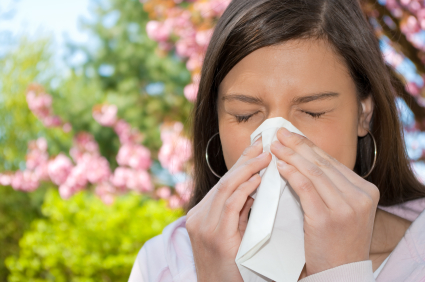Spring is right around the corner. And you know what that means… Sneezing, runny noses, watery eyes, and itching.
Allergy medications can be costly. Not to mention ineffective and dangerous…as usual. But if you are one of the 60 million Americans who suffer from allergies, you’ll want to pay close attention.1
Researchers in Japan treated rats with a natural compound for three weeks.2 Then they introduced them to specific allergens. But this compound inhibited the release of histamine. That’s the chemical that triggers tissue inflammation.
If you stop the release of histamine you prevent inflammation. And no inflammation means no allergy symptoms.
So what is this natural antihistamine?
Quercetin.
Another study out of Brazil confirms that this antioxidant can be a powerful ally for anyone with allergies.3 This time researchers injected mice with various compounds, including quercetin. The mice that received the natural compound had a lower count of the white blood cells that cause inflammation. Once again, control inflammation, control allergies.
In a report by Alternative Medicine Review researchers compared multiple studies on the compound.4 Their conclusion? Quercetin slows down the release of histamine, making it a natural treatment for allergies.
Of course allergies don’t always start and end with the season. Some people suffer year round. Dust mites, molds, and animal dander can cause reactions. And not all people suffer the same. Some are more fortunate and only have mild symptoms. Others experience severe reactions which can include hives and swelling of the throat.
Adding fruits and vegetables with quercetin to your diet may help. You can find it in onions, apples, citrus fruits and tea. But to ward off allergies you are better off going with a supplement. Quercetin is easy to find. Check out your local health food store or online. The recommended dosage is 300 mg three times a day.
Like this Article? Forward this article here or Share on Facebook.
References:
1 http://usatoday30.usatoday.com/news/health/story/health/story/2011/03/Seasonal-allergies-emerging/45457020/1
2 http://ncbi.nlm.nih.gov/pubmed/23333628
3 http://ncbi.nlm.nih.gov/pubmed/18026696
4 http://ncbi.nlm.nih.gov/pubmed/11056414

